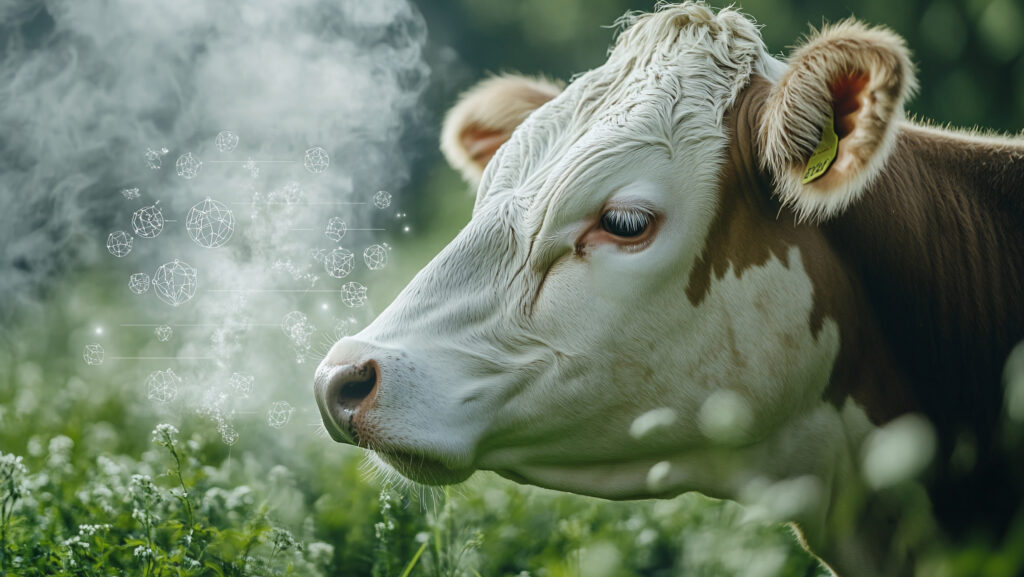Cost a major barrier to cutting farm GHG emissions
 © Adobe Stock
© Adobe Stock Cutting excess nitrogen use and minimum tillage are seen as most effective ways to reduce greenhouse gas (GHG) emissions, according to a farmer survey.
The survey, carried out by Agri-food for Net Zero Network+ (AFN+) champion Dr Amy Jackson, shows that many farmers have already adopted a wide range of emissions-reducing measures.
There is also a trend among respondents that indicates farmers want to do more to cut emissions.
See also: Farming emissions: What they are and why they must be tackled
Actions such as covering manure stores and anaerobic digestion are cited as the main ways forward.
Other methods of limiting GHGs, like methane-reducing feed additives or improving drainage, are deemed less important options.
However, the cost of implementing any of these measures is seen as prohibitive, the findings showed.
More than 40% of responses identified cost as the single biggest barrier preventing farm businesses from taking on more measures to cut GHGs.
The full responses from the survey will now be used as the subject matter for a follow-up “jury”, planned for February.
The jury will comprise a dozen or so farmers, who will hear testimony from a range of experts on climate change issues and discuss farming’s roles as contributor and solution.
Blame for GHGs
Amy says that increasingly erratic weather events have been linked to rising concentrations of GHGs and methane from cattle farming is regularly singled out for blame.
But farming is responsible for just 12% of UK GHG emissions compared with domestic transport at 28%, she points out.
“This suggest farming is attracting a disproportionate share of the criticism,” Amy says.
Explaining her role as an AFN+ champion, she says the situation echoes a similar one the situation 10 years ago when UK livestock was accused of driving drug-resistant infections in human medicine.
Although farming was blamed, the medical use of antibiotics was the leading factor.
Arguments over who was causing antibiotics resistance neither resolved the problem nor reduced criticism, says Amy.
Instead, livestock farmers and their representatives joined the fight against resistance and halved antibiotics sales, produced healthier animals and a created a positive reputation for UK livestock, globally.
Project aims
Amy’s role in helping to co-ordinate the positive approach was key in winning the AFN+ role, a three-year project funded by UK Research & Innovation, which aims to shape the next decade of research to support the reduction of GHG emissions in the agri-food sector.
“Through this project, I want to find a way to help farmers secure a bigger voice in proceedings and, in doing so, help solve the problem of our industry’s response to the climate challenge,” she explains.
“Inaction is not an option. The UK as a whole has binding international commitments to achieve net zero by 2050 and protect 30% of the planet for nature by 2030,” Amy adds.
For further information on the follow-up jury, contact Amy Jackson at amy@oxtale.co.uk.
Yara UK joins forces with Branston to cut carbon in potato crops
The type of active approach to cutting greenhouse gases (GHGs) through positive work and cross-industry partnerships, suggested by Amy Jackson, has been announced in the potato sector.
Fertiliser manufacturer Yara has teamed up with Branston, one of the UK’s leading potato suppliers, and the growers for Tesco Finest white potatoes.
Branston’s sustainability commitment led to discussions around how Yara could supply lower carbon fertilisers with abatement technology to reduce nitrous oxide emissions.
Alongside supplying fertiliser products, Yara will provide Branston with comprehensive potato crop nutrition support focusing on whole plant health to improve yield.
This will involve carrying out soil and leaf testing at its Lancrop Laboratories to assess nitrogen use efficiency.
It will also identify nutrient deficiencies and provide micronutrient products from the YaraVita range to ensure crops have everything they need.
The initiative amounts to a proof-of-concept project for Yara, aimed at gathering data to demonstrate to Branston and Tesco just how much of a carbon reduction is possible with its lower carbon fertilisers.
Included in this data will be verification statements, which will show the carbon footprint reduction of the products supplied.
